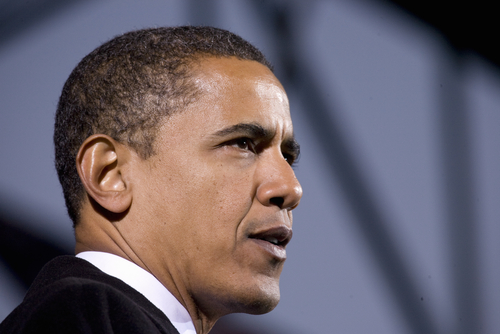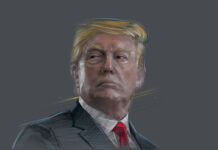
In a move that has ignited conversations across the nation, a new film has been released on Netflix that delves into the chaos of a cyber apocalypse. The movie, titled “Leave the World Behind,” is not just another addition to the streaming service’s extensive library of thrillers; it carries with it a contentious message that has raised eyebrows and tempers alike.
The film, co-produced by former President Barack Obama and First Lady Michelle Obama, has quickly climbed the ranks to become Netflix’s number one picture globally. It has garnered attention in 85 countries and outperformed other major releases in viewership within the first few days of its release. With such a broad audience, the impact of its underlying themes is far-reaching.
Netflix's "Leave the World Behind" cyber apocalypse movie warns about "white people" if "the world falls apart."
Barack and Michelle Obama are producers on the film. pic.twitter.com/HRV7oO96sa
— Charlie Kirk (@charliekirk11) December 11, 2023
“Leave the World Behind” stars notable actors such as Julia Roberts and Kevin Bacon and follows the story of a white family vacationing in a rented house on Long Island. Their peace is shattered when a cyber attack plunges the United States into darkness. The plot thickens when the vacation home’s owner, G.H. Scott, and his daughter Ruth arrive at the house amidst the crisis.
A particular scene has become the focal point of much of the discussion surrounding the film. In this moment, Ruth expresses a sentiment that has sparked controversy: “If the world falls apart, trust should not be doled out easily to anyone, especially white people.” This line has led to accusations that the film is promoting a divisive and potentially harmful narrative.
Wow
Cyber apocalypse movie produced by Barack and Michelle Obama that warns about "trusting white people if the world falls apart”
No surprise they’re also intentionally fear mongering about Tesla FSD and Elon Musk by proxy
So blatantly obvious what they’re doing. Sad! https://t.co/zg9RbJ7sJJ
— Ashley St. Clair (@stclairashley) December 12, 2023
Critics argue that the inclusion of such a statement is indicative of a larger trend where it is deemed acceptable, even celebrated, to harbor and express racially charged sentiments, provided they are directed towards certain groups. They contend that the film’s message is emblematic of a societal double standard when it comes to discussions of race and trust.
Supporters of the film might say that it is merely a reflection of the characters’ perspectives and fears within a fictional scenario. However, detractors are concerned about the implications of such a message being disseminated by influential figures through a widely consumed medium like Netflix.
The debate over the film’s message has extended beyond the realm of entertainment, touching on broader issues of race relations and the role of media in shaping public perception. Some see it as a cautionary tale, warning of the dangers of a breakdown in global communications, while others view it as a vehicle for programming societal attitudes towards race and trust.
As the conversation continues, “Leave the World Behind” serves as a stark reminder of the power of film to influence and provoke. Whether it will lead to constructive dialogue or further polarization remains to be seen, but one thing is clear: the film has struck a nerve, and its reverberations are being felt across the cultural landscape.











